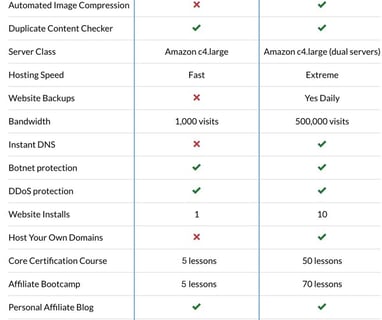Five Pros and Cons of Affiliate Marketing
Affiliate Marketing: A cost-effective online business model where marketers promote other companies' products or services and earn commissions on successful referrals. Pros include low startup costs, passive income potential, and a wide range of products to promote. However, it comes with challenges like high competition, income fluctuations, and trust-related concerns.
8/2/20232 min read


Five Pros and Cons of Affiliate Marketing
Affiliate marketing can be a lucrative venture, but like any business model, it comes with its own set of pros and cons. Here are five advantages and five disadvantages of using affiliate marketing to generate profits:
Pros of Affiliate Marketing:
Low Startup Costs: Affiliate marketing typically requires minimal upfront investment since you don't need to create your own products. You can begin promoting affiliate products through your website or social media with little to no initial cost.
No Inventory or Customer Support: As an affiliate marketer, you don't have to deal with inventory management or customer support. The product owner handles these aspects, allowing you to focus on promoting the products and earning commissions.
Passive Income Potential: Once you've set up your affiliate marketing campaigns and generated traffic to your links, you can earn passive income as long as your referral links remain active. This means you can continue to earn commissions without constant active effort.
Wide Range of Products: Affiliate marketing provides access to a vast array of products and services across different niches. This variety allows you to explore various markets and find products that align with your audience's interests.
Performance-Based Income: Unlike traditional jobs, affiliate marketing rewards you based on your performance. You have the potential to earn higher commissions by driving more sales or leads, providing motivation to improve your marketing efforts.
Cons of Affiliate Marketing:
High Competition: The affiliate marketing space can be highly competitive, especially in popular niches. Competing with experienced affiliates and established websites can make it challenging to stand out and gain traction.
Dependence on Affiliate Programs: As an affiliate marketer, you rely on the affiliate programs you promote. If a company changes its commission structure or discontinues its program, it could affect your earnings.
Income Fluctuations: Affiliate marketing income can be inconsistent, especially when you're starting. Seasonal trends, changes in consumer behavior, or fluctuations in traffic can lead to varying income levels.
Trust and Credibility Concerns: Some consumers may be wary of affiliate marketing links, as they might perceive them as biased or less trustworthy. Building credibility and trust with your audience can take time and effort.
Compliance and Legal Issues: Affiliate marketing involves adhering to various rules and regulations, such as disclosing affiliate relationships and following advertising guidelines. Failure to comply with these regulations could lead to penalties and damage your reputation.
In conclusion, while affiliate marketing offers many benefits, such as low startup costs and passive income potential, it also comes with challenges like high competition and fluctuating income. Success in affiliate marketing requires dedication, strategic planning, and the ability to adapt to market trends and changes.
If you are serious about starting with affiliate marketing and want to get a taste of what is possible, check out Wealthy Affiliate where you can start training without even putting in your credit card information.




